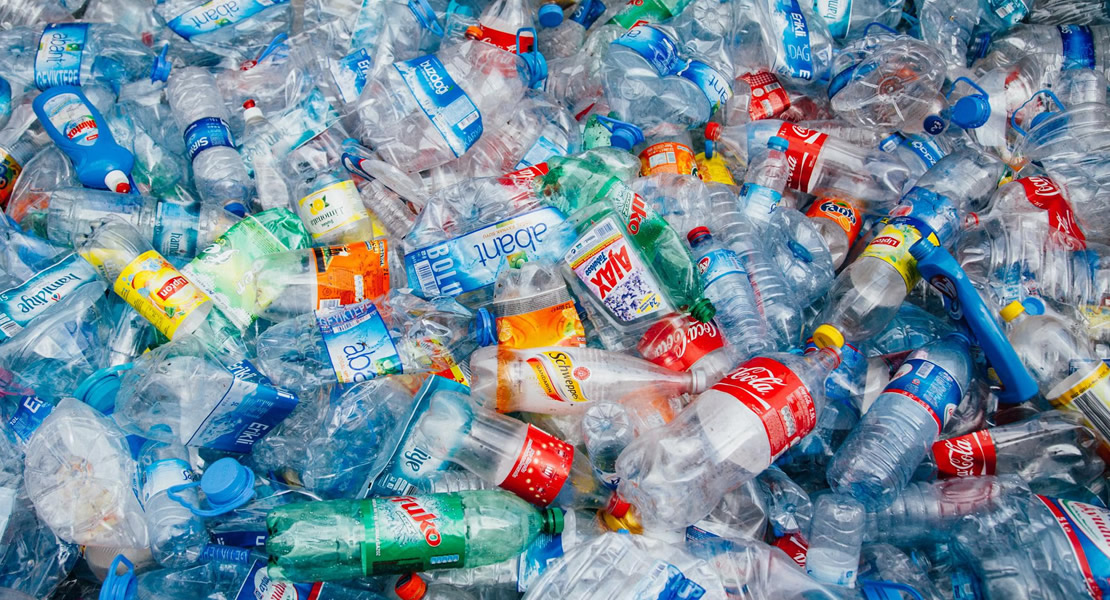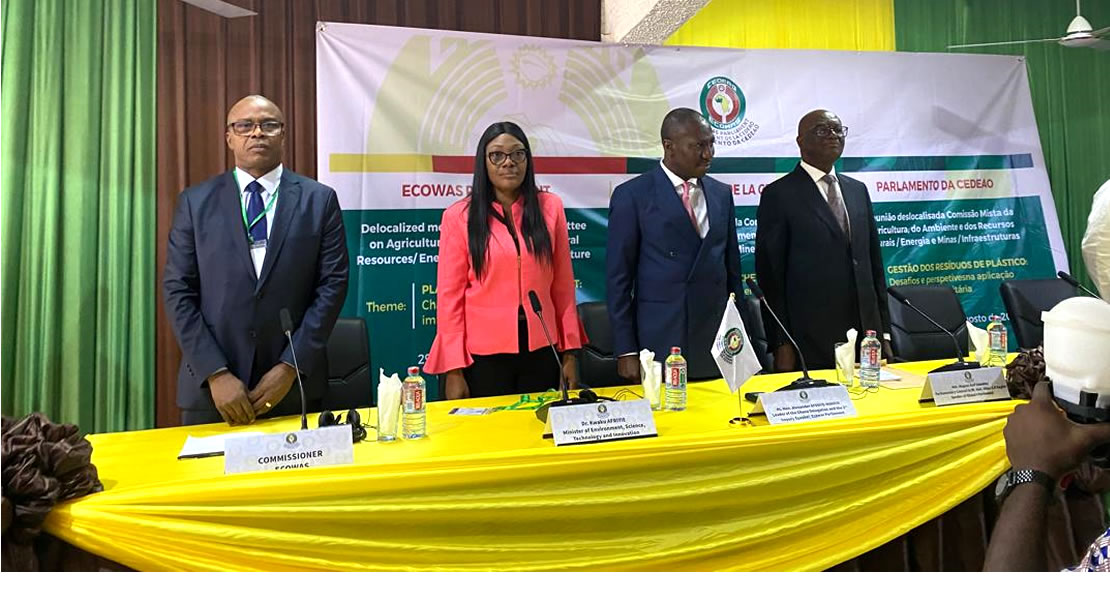
The Speaker of the Economic Community of West African States Parliament, Rt. Hon. Hadja Mémounatou Ibrahima has underscored the dangers posed by the proliferation of plastic wastes in the sub-region.
According to her the development poses significant environmental challenge that threatens our development and collective well-being.
Speaking at the opening of the delocalised joint committee meeting in Winneba-Ghana, on plastic waste management within ECOWAS on the theme: “Plastic Waste Management: Challenges and Prospects in the Implementation of Community Activities”, The Speaker in a speech read on her behalf by the Third Deputy Speaker, Alexander Afenyo-Markin said the impact of plastic pollution on our ecosystem is undeniable and poses a significant threat to our survival.
“The figures are alarming; ECOWAS generates around 17 million tonnes of plastic waste annually, of which only 10% is recycled. This lack of proper management leads to an accumulation of plastic waste in the environment, polluting our oceans, rivers and soils and threatening biodiversity”.
The impact on public health, she said is also a cause for concern, with increased risks of illness linked to pollution and contamination of water resources.
According to her, at the international level, in addition to the numerous conventions adopted to combat climate change, awareness of the many negative impacts of plastic waste on the environment and human and animal health has led the international community to institute a “World Plastic Bag Free Day” in 2010, which is celebrated every year on 3 July.
ECOWAS, also having been aware of the urgency of the situation, has adopted a community policy for the management of plastic waste. “This ambitious and necessary policy aims to promote the reduction, recycling, and recovery of plastic waste while ensuring the responsible management of non-recyclable waste”.
She disclosed that some countries, including Togo, Mali, Côte d’Ivoire, Burkina Faso, Guinea-Bissau, Niger, Gambia and Senegal have already adopted legislation to regulate the plastics sector in their various countries.
“ECOWAS has adopted the Regulation on the Regulation of Plastic Products and the Harmonisation of the Environmentally Sound Management of Plastic Waste in ECOWAS Member States. Waste within ECOWAS Member States to alleviate the difficulties experienced by Member States in effectively implementing the regulations already in place”, she affirmed.
The Rt. Hon. Speaker was however not impressed that despite these efforts, the community is still struggling to eradicate plastic waste from our towns, countryside, and oceans.
This, she noted, is mainly due to the lack of adequate infrastructure for collecting, sorting, and processing plastic waste and the lack of awareness among our population; adding that if nothing is done, the plastic waste pollution is likely to significantly impact food security in ECOWAS.
She cited the general report on the state of implementation of the community’s work programme, in which the President of the ECOWAS Commission, H. E. Omar Alieu Tourey, informed the ECOWAS Parliament that cereal production in 2023-2024 would be 0.6% down on the previous year. “This results in a worrying food and nutrition situation in the region, which could affect more than 49.5 million people if appropriate measures are not taken”, she warned.
In view of these, she called for deep thinking to bring out innovative and sustainable solutions while urging member states to;
• invest massively in research and development,
• encourage technological innovation in the recycling and recovery of plastic waste,
• strengthen the capacities of local players in the responsible management of plastic waste; and
• adapt our school curricula to include compulsory subjects on the fight against climate change in general and plastic waste in particular to better prepare them to adapt to these new challenges.
She called for collective action and collaboration to propose effective solutions for plastic waste management since individual efforts are not enough.
Ghanamps.com